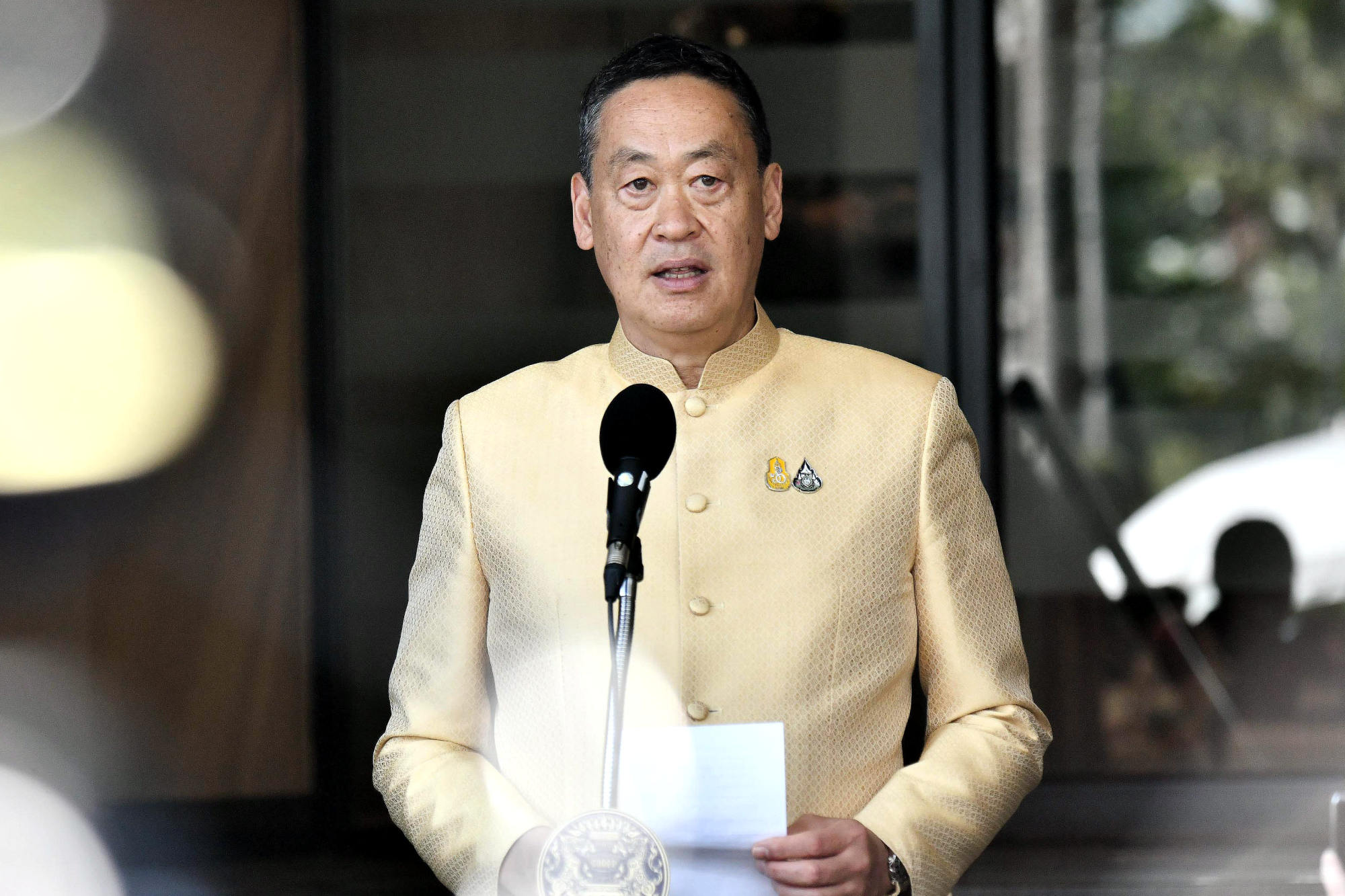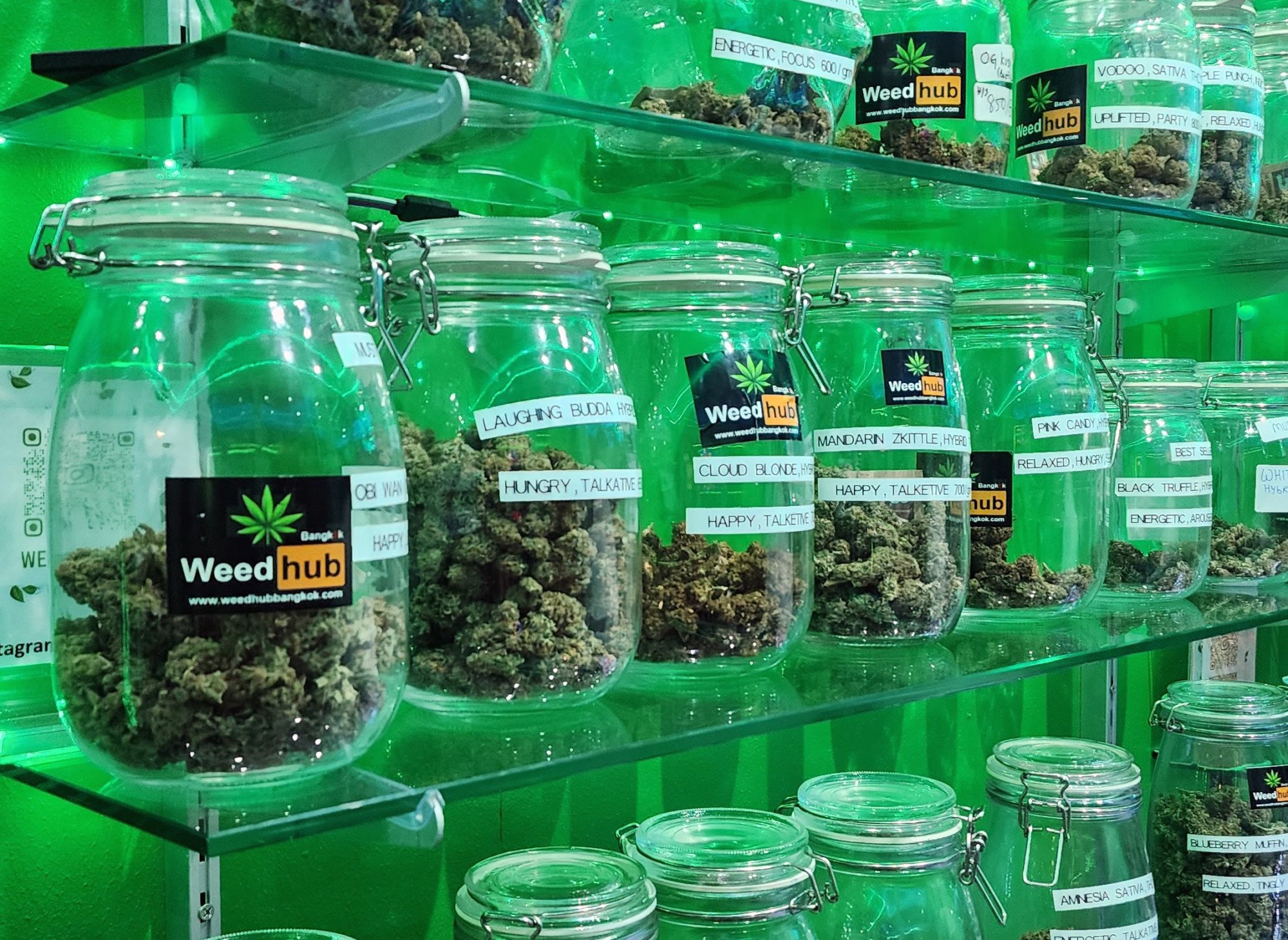
Thai government could face ‘thousands’ of lawsuits as it seeks to ban recreational cannabis use
- Entrepreneurs, producers and cannabis advocates say a rollback of the laws would be ‘unfair’, hurt tourism and force businesses to go back underground
- As companies ready their lawyers over the bill, observers say the emphasis should be on regulation and taxation instead
Thailand’s cannabis industry is lawyering up as the cabinet weighs a bill to roll back legal weed, which industry insiders say is propelled by political calculation rather than sound public health policy.
While the cabinet did not take up the Cannabis and Hemp Act at its weekly meeting on Tuesday, entrepreneurs, producers and cannabis advocates forecast grave economic harm and a storm of litigation should lawmakers adopt the proposed regulations, which in present form, would ban recreational consumption and reintroduce stiff criminal penalties.
“If this bill completely passes, it’s going to be hard. It prohibits a lot of things. It puts criminal charges and heavy fines on violations which are unfair,” said Rattapon Sanrak, the founder of advocacy group Highland, which has hosted annual pro-cannabis festivals for nearly a decade.

Soranut “Beer” Masayavanich, the owner of a cannabis dispensary that was stocked and ready on day one of decriminalisation just over 600 days ago, says he is shifting between anxiety and measured optimism as he considers the future.
“Nobody in their right mind would do what they’re doing,” he said. “So I hope they’re just bluffing.”
What they’re doing, according to the Health Ministry’s draft legislation, is safeguarding public health by reining in cannabis anarchy. The latest spasm of outrage burst just days ago, after media reports amplified complaints that Coldplay’s sold-out Bangkok concert was cloaked in weed smoke.
Fears of rampant access to cannabis for schoolchildren have also surged in the legal free-for-all which followed the June 9, 2022, decriminalisation of cannabis, ostensibly for medicinal and wellness purposes.
Industry insiders say the ganja genie can’t be rebottled, yet they have been plunged into dismay, disbelief and even denial, as politicians see-saw over how to curb the most open weed laws anywhere in the world.
“Everyone is talking to lawyers,” Beer told This Week in Asia, raising the prospect of a class-action suit by cannabis investors against the government.

Under the proposed new rules, getting high just for laughs will be punishable by a fine of 60,000 baht (US$1,700). Unlicensed ganja growers face five years in prison and 500,000 baht fines and retailers who fail to prevent customers from smoking risk a year behind bars and a 100,000 baht fine.
Entrepreneurs welcome grades of regulation to ensure quality and public safety. But they reject the reflex to entirely close down a sector which has ballooned in value to nearly US$800,000,000 by the end of 2022, according to the University of the Thai Chamber of Commerce, which forecast it may reach US$1.2 billion by the end of 2025.
They’re going to have so many lawsuits. At all the big companies, the lawyers are ready
“It’s hard to even take it seriously,” said Benjamin Baskins, CEO of OG Canna, which operates some of Bangkok’s largest, flashiest dispensaries in tourist areas.
He said the bill didn’t have a chance of passing in its current form. “They’re going to have to answer a lot more questions before they can pass anything.”
Baskins is among those who chalk up the effort to political messaging from a prime minister elected without a public mandate, with a bill that is likely to undergo multiple revisions as it moves through parliament.

A subsidiary of nightlife entertainment conglomerate Panthera Group, OG Canna, has invested hundreds of millions of baht in 12 dispensaries, a clinic, a Chiang Mai growing facility and an extraction plant.
Another thing it has is lawyers.
“They’re going to have so many lawsuits,” Baskins said. “How are they going to deal with 7,000 lawsuits from dispensaries, and thousands more from growers?
“At all the big companies, the lawyers are ready.”

Proponents say a rollback would ripple through an economy which has been boosted by cannabis in many intangible ways.
The pandemic left a high rate of commercial vacancy, and recriminalisation could force thousands of shopfronts to go dark again, taking with them an untold number of jobs. It would also extinguish tourism arrivals drawn to Asia’s only 420-friendly destination.
Millions of dollars have been invested in hi-tech growing facilities, retail locations and tourism offerings.
Despite the oversaturated market – many of the dispensaries outnumbering ubiquitous 7-Eleven stores in parts of Bangkok sit empty of customers – investments continue to pour in.
Six months after work began on a 2,000 square metre (21,500 sq ft) indoor-grow facility in Bangkok’s Bang Na district, Diamond Trichome last month harvested its first crop of potent strains with names like White Truffle, Black Diamond and King’s Juice.
“If I’m unable to operate, that would hurt me dramatically,” said Bird Srisuthisuriya, its 37-year-old founding partner. “But I’m hoping the government isn’t going to go that way.”
Instead, lawmakers should enact rules to make cannabis “more clean, more hygienic and safe”, he said. No pesticides, no mould, no heavy metals.

Industry insiders say the compromise that may emerge is a medical marijuana paradigm similar to that of pre-2018 California, where recreational consumption became legal only after 22 years of medical availability.
In practice, anyone of age could obtain a US$15 card allowing them to buy weed.
Taopiphob Limjittrakorn, an opposition lawmaker with the progressive Move Forward Party, believes recreational weed has become normalised and the emphasis should be on regulation and taxation.
“They’re trying to ban marijuana to gain popularity with the people,” he said of the Pheu Thai-led effort.
A Pheu Thai representative said the bill was in progress and that no one was available to discuss it.

Cannabis dealer Beer entered the cannabis underground years ago, after a weed bust extinguished his career as a young actor. He believes the appetite to ban weed is disingenuous, saying that many of the same politicians – or their children – have financial stakes in the industry.
All the production and infrastructure furiously assembled over the past 19 months isn’t going away, and Beer said criminalising cannabis would just drive it underground again.
“I’ll be fine. I was underground before and can be underground again,” he said.
But the new underground will be much larger and uglier than before, he warns, with more transnational criminality and corruption.

.png?itok=qMQykH71&v=1705649071)